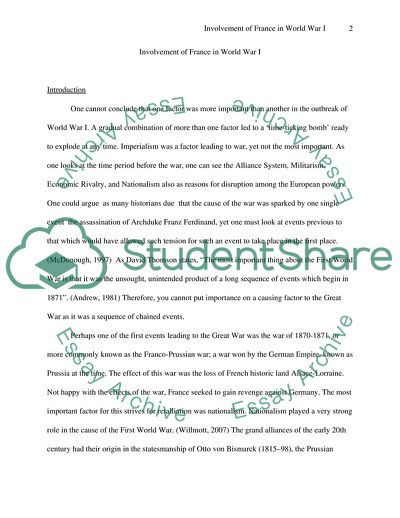Cite this document
(The Most Important Thing about the First World War Term Paper, n.d.)
The Most Important Thing about the First World War Term Paper. Retrieved from https://studentshare.org/history/1713792-what-responsibility-if-any-did-france-bear-for-the-outbreak-of-the-first-world-war
The Most Important Thing about the First World War Term Paper. Retrieved from https://studentshare.org/history/1713792-what-responsibility-if-any-did-france-bear-for-the-outbreak-of-the-first-world-war
(The Most Important Thing about the First World War Term Paper)
The Most Important Thing about the First World War Term Paper. https://studentshare.org/history/1713792-what-responsibility-if-any-did-france-bear-for-the-outbreak-of-the-first-world-war.
The Most Important Thing about the First World War Term Paper. https://studentshare.org/history/1713792-what-responsibility-if-any-did-france-bear-for-the-outbreak-of-the-first-world-war.
“The Most Important Thing about the First World War Term Paper”. https://studentshare.org/history/1713792-what-responsibility-if-any-did-france-bear-for-the-outbreak-of-the-first-world-war.


